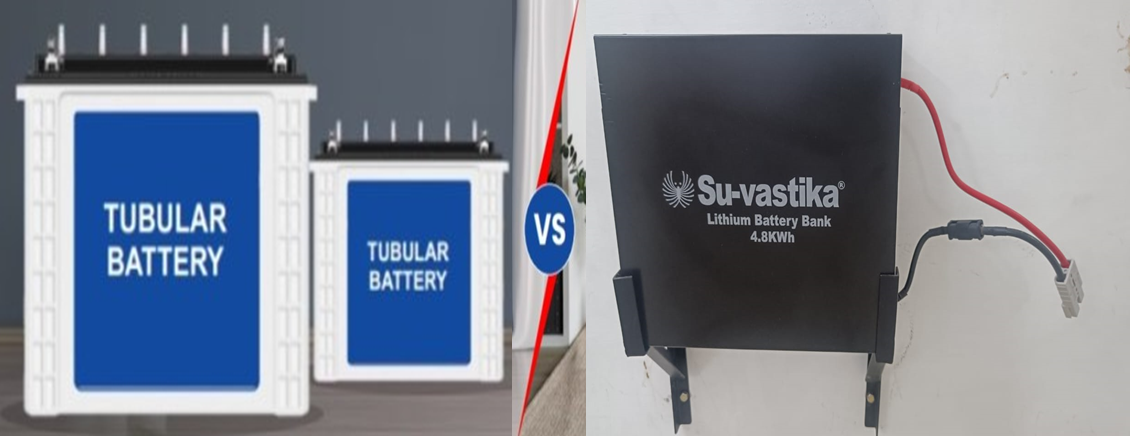The Future of Lithium-Ion vs. Lead-Acid Batteries in Inverter Storage Systems,
Why Choose Lithium Inverter Storage Systems over Lead Acid
Lithium-ion batteries have been making significant strides in the inverter storage system market, offering several compelling advantages over traditional lead-acid batteries. Let’s delve deeper into the key factors driving this shift and the ongoing considerations.

Why Choose Lithium Inverter Storage Systems over Lead Acid
Key Advantages of Lithium-Ion Batteries
- Higher Energy Density: Lithium-ion batteries can store more energy in a smaller footprint, making them ideal for applications where space is limited.
- Longer Lifespan: They generally have a longer lifespan, especially when deep-cycled regularly, reducing the need for frequent replacements.
- Faster Charging and Discharging: Lithium-ion batteries can charge and discharge more quickly, enabling faster response times and better performance in grid-tied systems.
- Lower Maintenance: Unlike lead-acid batteries, they require minimal maintenance, reducing operational costs.
- Improved Safety: While thermal runaway is a concern, modern battery management systems have significantly enhanced their safety.

Why Choose Lithium Inverter Storage Systems over Lead Acid
Challenges and Considerations
- Higher Initial Cost: Lithium-ion batteries typically have a higher upfront cost compared to lead-acid batteries.
- Long-Term Reliability: While their lifespan is generally longer, long-term reliability and performance data are still being collected.
- Environmental Impact: The environmental impact of lithium-ion battery production and recycling is a subject of ongoing research and debate.
Why Choose Lithium Inverter Storage Systems over Lead Acid
The Future Outlook
Despite the challenges, lithium-ion batteries are poised to become the dominant choice for inverter storage systems due to their superior performance and long-term benefits. As manufacturing costs continue to decline and technological advancements address concerns about safety and environmental impact, lithium-ion batteries are expected to play a pivotal role in the transition to renewable energy.
Why Choose Lithium Inverter Storage Systems over Lead Acid. Mr Kunwwer Sachdev known as Inverter Man of India is working aggressively on Lithium based Inverters and UPS and has filed technology patents based on these technologies.
Would you like to discuss specific applications or explore other emerging battery technologies?







18 Comments
I need to to thank you for this good read!! I certainly loved every little bit of it. I’ve got you book-marked to check out new things you
Ahaa, its good discussion regarding this paragraph at this place at this website, I have read all that, so now me also commenting here.
I am sure this post has touched all the internet people, its really really good article on building up new web site.
I will right away clutch your rss feed as I can’t in finding your e-mail subscription link or e-newsletter service. Do you’ve any? Please allow me recognize in order that I may subscribe. Thanks.
I visited several sites but the audio quality for audio songs present at this website is actually excellent.
I think you would be interested to read a similar blog post on my website
I will immediately take hold of your rss feed as I can’t in finding your e-mail subscription hyperlink or newsletter service. Do you’ve any? Please permit me recognise in order that I may subscribe. Thanks.
I love what you guys are up too. This kind of clever work and reporting! Keep up the excellent works guys I’ve incorporated you guys to our blogroll.
I am sure this paragraph has touched all the internet viewers, its really really fastidious paragraph on building up new web site.
ybhqoiiym dapoxetine 30mg india side effects ruxlmny
There is definately a great deal to know about this subject. I love all of the points you made.
Ahaa, its fastidious dialogue concerning this piece of writing here at this webpage, I have read all that, so at this time me also commenting here.
But wanna state that this is very helpful, Thanks for taking your time to write this.
I’ll right away grasp your rss feed as I can’t find your email subscription link or e-newsletter service. Do you have any? Please permit me realize in order that I may subscribe. Thanks.
Ahaa, its nice discussion concerning this post at this place at this web site, I have read all that, so at this time me also commenting at this place.
Hey there! I’ve been following your site for a long time now and finally got the bravery to go ahead and give you a shout out from Dallas Texas! Just wanted to tell you keep up the fantastic job!
Hello there! I could have sworn I’ve been to this site before but after reading through some of the post I realized it’s new to me. Anyhow, I’m definitely delighted I found it and I’ll be book-marking and checking back often!
I will immediately grab your rss feed as I can not in finding your email subscription link or newsletter service. Do you have any? Please allow me understand in order that I may subscribe. Thanks.